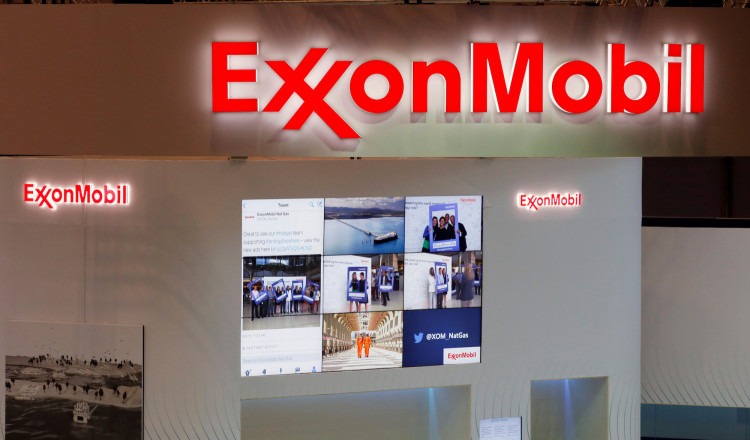Exxon Mobil Corp reported first-quarter earnings that fell short of analysts' expectations on Friday, as the oil giant grappled with eroding refining margins and collapsing natural gas prices. The company's stock fell nearly 2% in early trading following the announcement.
Exxon reported net income of $8.22 billion, or $2.06 per share, a 28% decrease from the $11.43 billion, or $2.79 per share, earned in the same period a year ago. While revenue beat expectations at $83.08 billion, it was lower than the $86.56 billion reported a year earlier.
CEO Darren Woods attributed the earnings miss to noncash and inventory adjustments, stating that the results were in line with the company's plan. "In fact, in some cases they outperformed," Woods said in an interview with CNBC's "Squawk Box." "You can see that in our cash flow from operations, which exceeded consensus by about a billion dollars."
Despite Woods' optimism, Exxon faced pressure from lower refining margins and natural gas prices that have plummeted 37% this year. Oil and gas production profits fell 12% to $5.67 billion, compared with $6.46 billion in the same quarter last year. Exxon produced 3.78 million barrels per day in the quarter, down slightly from the 3.83 million barrels per day in the year-ago period.
However, production in Guyana reached more than 600,000 barrels per day in the first quarter, a bright spot for the company. "If you look at Guyana and the development there, I think it will go down as one of the best deep-water developments in the history of the industry," Woods told CNBC.
Exxon's fuel business saw earnings plummet 67% to $1.38 billion, compared with $4.18 billion in the prior year, due to lower refining margins. The company's chemical products segment, on the other hand, saw profits more than double to $785 million compared with $371 million in the same quarter last year.
The company is currently locked in a dispute with Chevron over the latter's pending acquisition of Hess Corp. Exxon has taken Chevron to arbitration court to defend its claim to a right of first refusal over Hess' assets in Guyana under a joint operating agreement. Woods reiterated that Exxon is not seeking to buy Hess, but wants to know the value Chevron is placing on Hess' Guyana assets and confirm its preemption rights.
"First of all, we'll confirm the rights of preemption and look to see what the cash value of this asset is within that transaction, and then we'll explore the opportunities that are available to us," Woods said when asked whether Exxon is seeking compensation from Chevron.
Chief Financial Officer Kathryn Mikells stated that the results were the second highest for a first quarter in the past decade, behind the year-ago period, and attributed the miss in part to tax and inventory balance sheet adjustments. "Every quarter, we have some pluses and minuses associated with these one-off items," she said. "Sometimes they are favorable, this time they were unfavorable."
Exxon's capital spending last quarter was the lowest in seven quarters, and its streamlining of operations expanded what it calls structural cost savings by $400 million. The company added $1.7 billion in cash last quarter to end the period with $33.3 billion.
As Exxon prepares to close its $60 billion deal for top shale oil producer Pioneer Natural Resources, Mikells said the company has started the integration process with a separate team working on the transition. "We are feeling really good about our interactions with the Pioneer people and making sure that we put our best foot forward as we close this transaction," she said.
The all-stock deal for Pioneer would make Exxon the largest oil and gas producer in the top U.S. shale field, doubling output there to more than 1.3 million barrels of oil equivalent per day. Exxon forecasts the combination will allow it to reach 2 million barrels per day in 2027.





